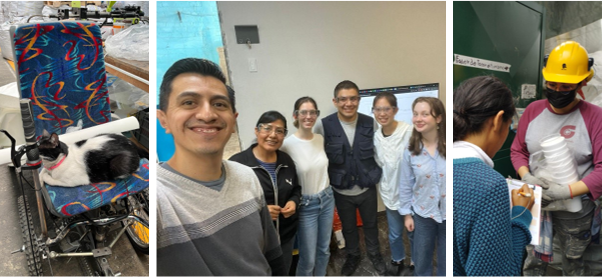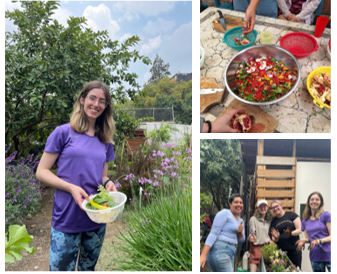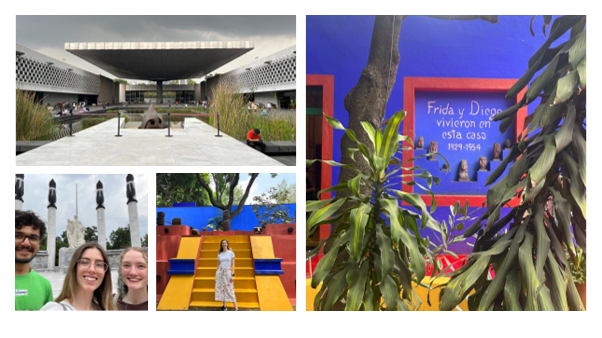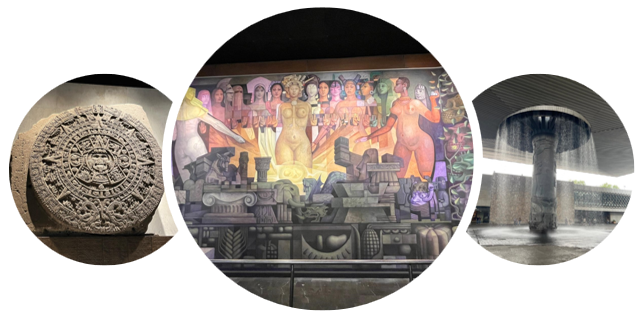Week 3 LIA: Make_Sense, Mexico
Understanding the Balance of Ambition and Limitation
This week, we had a meeting with the communications team to define the scope of our project. After a productive discussion about the capabilities of both teams, we decided to shift our focus from producing an in-depth video guide to creating a written manual, which the communications team would later develop into a video.
Acknowledging our limitations as a small team of three scholars with limited video-making experience, this was a strategic decision that allowed us to play to our strengths.
At the recycling plant, we had the opportunity to see the technology in action and learn about its evolution and success at Rennueva. Specializing in polystyrene, the plant presented new challenges and learning opportunities for us, especially in understanding the different processing stages of this material.
Mobilising our Volunteers
Our volunteer team proved invaluable this week. They contributed to a variety of tasks that were essential for evaluating our project as part of our design thinking process and assisted us on visits to the Rennueva plant.

We engaged our volunteers in the design thinking stages: empathize, define, ideate, prototype, and test. We asked them to empathize with the current Rennueva staff, prototype the new platform, and brainstorm improvements. Their professional experiences and fresh perspectives were crucial in shaping our approach and enhancing the staff training plan.
The in-person volunteers were especially helpful in ensuring our training plan was clear and comprehensible to the staff members. Their fresh eyes and insights were instrumental in refining our approach.
IRRI Visit
Our organization visit this week took us to Huerto Tlatelolco, an IRRI-partnered orchard. Their mission is to promote regenerative food cultivation, training programs, and increasing social engagement and knowledge about closed nutrition cycles. They highlighted the importance of community gardens and creating spaces where people from deprived communities can access sustainable initiatives, like organic waste recycling, to make the city more resilient to climate change through collective action.

It was a lovely day working together to contribute to the work of the gardens, through planting seeds, transferring plants to new beds and turning compost to increase oxygenation.
Anthropology and Culture Frida Kahlo

This weekend's cultural experiences were particularly enriching. I visited the Frida Kahlo Museum and the National Museum of Anthropology. Having admired Frida Kahlo's work for years, it was fascinating to delve deeper into her life, struggles, and inspirations. Her ability to communicate emotions and nature through her art is truly remarkable.
The National Museum of Anthropology offered profound insights into the history and culture of Mexico, especially the religious aspects of Mayan and Aztec life. Learning about their beliefs and how they influenced daily life and community defense was eye-opening. The museum's stunning architectural style added to the overall experience.

My favourite pieces from the anthropology museum was the sun stone and the mural “Las razas y la cultura” (Races and Cultures).
The mural was commissioned by the Mexican Government in the 1960s and painted by Jorge González Camarena. The work highlights the beauty and diversity of humanity and the cultures that have been present throughout history, through the portrayal of 14 different female goddesses from across the world.
The sun stone (Piedra del Sol) is an important cultural artifact in Mexico and represents the Aztec concept of time as a cyclic nature as well as the relationship between Gods and humans.
Next Steps for Our Team
To continue to develop our project and adapt to our new plans, we will spend the next week defining the plan for the manual and taking into account previous survey responses from both staff and volunteers to ensure our manual is an effective training tool and can be of great use of to the company for the future.



Please sign in
If you are a registered user on Laidlaw Scholars Network, please sign in